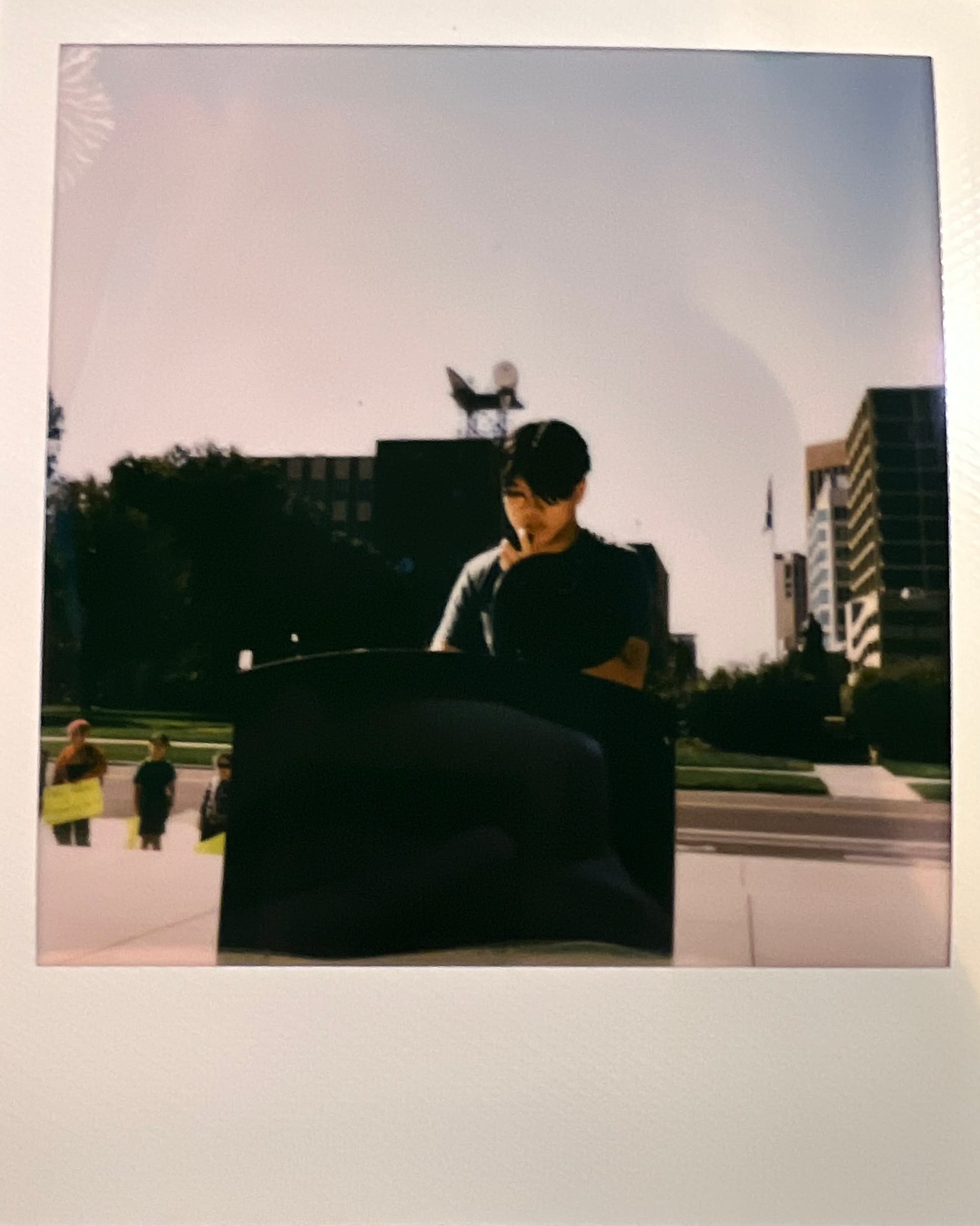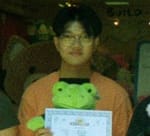The Book That Made Me Cry - Fridays for Future Speech

Watch me give this speech live:
It’s the spring of 2022. Third period had ended and I had just finished reading No One is Too Small to Make a Difference by Greta Thunberg. News, books, teachers, friends kept saying, “If we don’t solve climate change, we’ll go extinct.”
But I hadn’t realized what that meant.
Extinction. Nothingness. Emptiness. Abyss.
So, here I am, walking to environmental science, my breath a little heavier than normal, the voice in my head a bit quieter than normal. I get to class, sit down, and hear, “Michel, are you okay?”
Am I okay? Yeah—of, of, of course I am, I thought. I mean, I did just read 11 essays about how we’re going to die in 8 years because on January 1st, 2018 we had 420 gigatonnes of CO2 left in our carbon dioxide budget and we emit 42 gigatonnes of CO2 every year and that means we’ll hit 420 in less than 8.5 years and we haven’t developed the proper technology to drastically reduce emissions and… wait… this is information collected by the Intergovernmental Panel on Climate Change so they can’t be wrong, right? Right? Wait, there’s no way that’s right.
My breath becomes heavier. I blankly stare at my environmental teacher, Ms. Stutzman, giving some announcement. No. 8 years? 8 years. No, they must’ve gotten it wrong. 8?
I raise my hand and ask, “Can I give an announcement?”
“Sure,” she says.
I trudge to the front of the room and describe this great revelation I had realized—as if they hadn’t heard this story before. My voice wavers and quickens, my eyes dart around the room, trying to see if anyone else understands. I finish my speech and sit down. Stutzman walks over to me and asks, “Do you need a hug?”
I nod, and in her embrace, the tears start flowing.
Those numbers are a bit outdated, Greta’s book was published 3 years ago. In the IPCC’s most recent report, they’ve shown that global emissions have increased and that we’ll most likely hit a threshold of 1.5 degrees Celsius above pre-industrial levels within the next two decades. Right now, we’re at 1.1.
1.5 matters because that’s the tipping point to destabilizing the climate—to starting an irreversible chain reaction—and, right now, we have 288 gigatonnes of CO2 left in our budget. That’s 6 years to reduce extreme weather events, rising ocean levels, species loss, famine, poverty. The list goes on.
And I get that list isn’t super poignant. It’s kind of hard to realize how detrimental these symptoms are to every being on Earth. But think about it this way: we have 6 years to stop unnecessary deaths—people that are someone’s partner, mom, dad, sibling, friend, mentor, teacher, teammate, or coworker. We have 6 years to stop them from dying.
Yet these carbon-neutral pledges are useless. At this point, we need to go carbon negative, but we don’t have that technology.
But, as John Green said, “I reject nihilism.” I refuse to succumb to this idea that we’re doomed. Because who gives a fuck if we are?
We have to try our best and act like the world isn’t ending. There’s no point in moping around because what if the scientists are wrong? What if they underestimated humanity’s ability to solve, to compromise, and to love? What if they got it wrong?
If we resigned to the idea of extinction, we lose that chance. We lose hope, and at this point, we cannot lose hope. Even if, we’ve engineered an inevitable extinction, we can still reduce its impacts on humans and our environment. We can still show compassion and understanding and mercy.
More than two billion years ago, Earth had its first life form that caused a mass extinction. It goes by the name of cyanobacteria. Now, we’re in the middle of the sixth mass extinction, but our story doesn’t have to be the same as the previous five. We can change it.
And we must believe we can.
You must believe we can.
So, please, do whatever you can to steer our story away from being a tragedy. Help us write our story as one of a triumphant environmental revolution.
Help us survive.
Help us not be the sixth.
No spam, no sharing to third party. Only you and me.

Member discussion